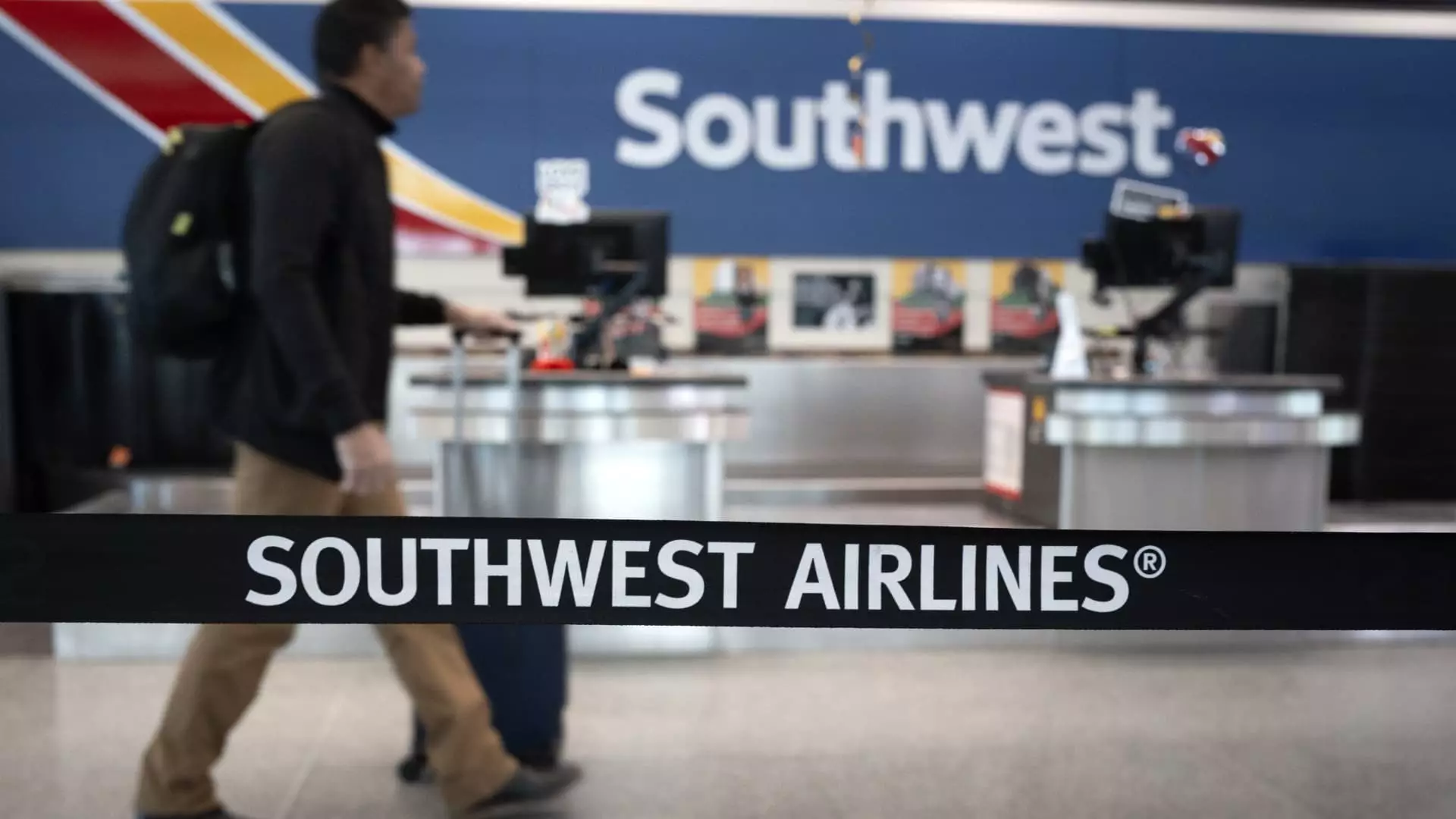The aviation landscape is in constant flux, governed by market demands and profit-driven motives. However, when a brand like Southwest Airlines announces a departure from a fundamental customer benefit, it prompts serious reflection on its core values. As of Wednesday, Southwest Airlines will begin charging for checked baggage for the first time in over fifty years, dismantling its once-sacrosanct “two bags fly free” policy. What was once a hallmark of the airline’s customer-friendly image now threatens to erode the very trust that built its loyal customer base.
The Financial Pressure Behind Policy Changes
Charging for checked bags isn’t merely a revenue decision; it’s a paradigm shift driven by cold, hard numbers. With U.S. airlines raking in nearly $7.3 billion in baggage fees last year, Southwest’s executives faced mounting pressure to capitalize on this lucrative revenue stream. Despite the airline’s commitment to customer-friendly practices, the relentless pursuit of profit has overshadowed the historic values that once set Southwest apart from its competitors. Activist investors like Elliott Investment Management, who acquired a stake in the airline, have forced the hand of an institution that once prided itself on its customer experience. In pursuit of financial gains, Southwest risks alienating its dedicated travelers.
Competitor Conformity and the Loss of Individuality
Southwest’s new policies not only align it with the practices of competitors like Delta, American, and United Airlines, but they also raise the question: are we witnessing the end of an era? The introduction of baggage fees and basic-economy tickets is a stark move away from Southwest’s distinctive brand identity. It’s increasingly difficult to distinguish one airline from another when they all begin to mirror the same burdensome cost structures and restrictions. A once-celebrated model of open seating and two free checked bags feels disconcertingly obsolete. As an airline that once touted itself as the champion of the average traveler, Southwest’s new identity appears not just diluted, but dangerously aligned with a corporate mindset focused on financial gain over customer satisfaction.
The Expansive Impact on Customer Loyalty
What’s at stake with this shift in policy? For frequent travelers and supportive loyalists who have long prioritized Southwest for its progressive policies, the loss of complimentary checked bags can translate to a significant increase in their travel expenses and a subsequent erosion of brand loyalty. Although the airline has tried to cushion the blow by providing exemptions for certain tiers of the Rapid Rewards loyalty program, it doesn’t change the underlying disappointment felt by rank-and-file customers. The expectation of free services, now systematically stripped away, leaves a gaping void that is not easily filled by the mere promise of enhanced customer service in the future.
Industry-Wide Implications of Increased Fees
The ripple effects of Southwest’s decision will not be contained within its own customer base. As the airline implements these fee structures, it could precipitate a widespread shift across the aviation industry. Many travelers might reconsider how they perceive airline ticket prices in light of additional fees that can pile on unexpectedly. This could lead to a broader normalization of increased travel costs across the board, resulting in a cyclical trend of diminishing services and escalating fares by all airlines.
The Digital Age and Consumer Pushback
In the current climate of social media and instant feedback, the backlash against Southwest Airlines has already been swift and vocal. Customers have expressed their anger through social platforms, often overshadowing positive news the airline may wish to highlight. CEO Bob Jordan’s assertion that customer bookings have not significantly dropped following the announcement suggests a short-term buffer against backlash; however, long-term repercussions loom large. If customers do not feel valued and understood, they may seek to take their business elsewhere—a risk the airline cannot afford post-pandemic.
While Southwest Airlines may justify its policy changes as financially prudent, these shifts are more than just adjustments on a business ledger; they symbolize a larger deviation from a beloved company ethos. The implications stretch far beyond financial statements; they delve into the very fabric of customer trust and loyalty. As Southwest’s identities blur with its competitors, it raises the urgent question: at what cost does profitability come, and can a company exist without the trust of its customers?


Leave a Reply